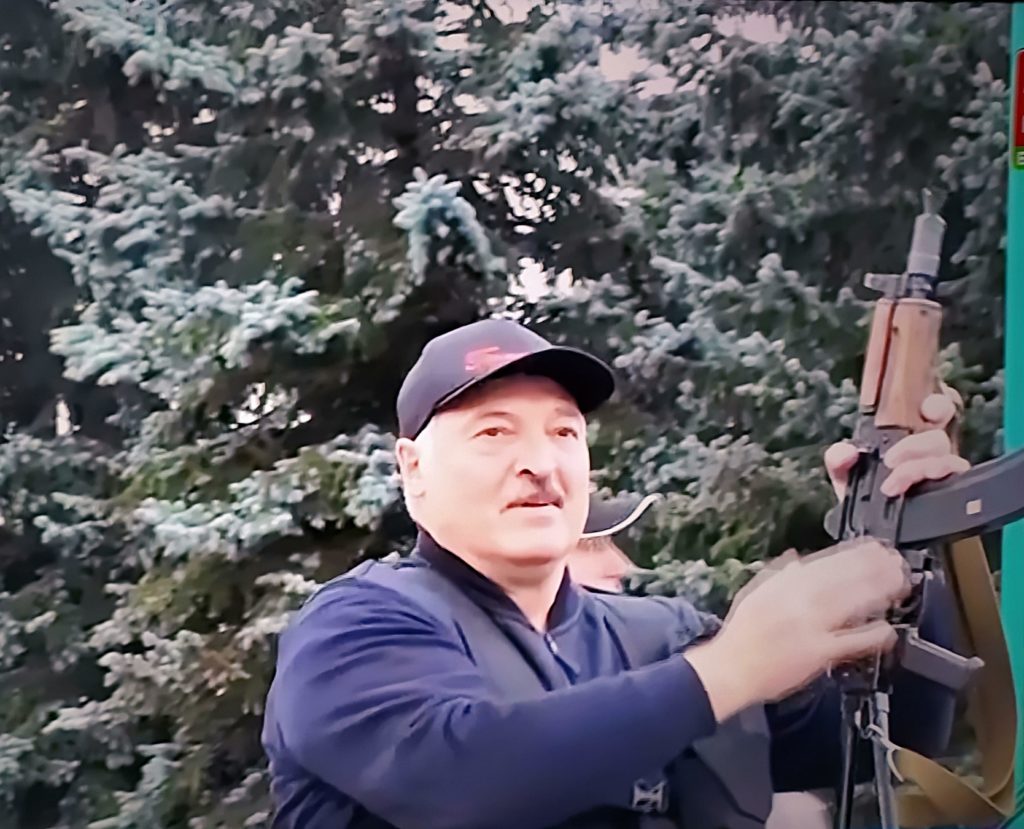Belarus ordered the European Union’s top diplomat in the country to leave on Monday, the latest sign of a total breakdown with the bloc and the West. Minsk also suspended cooperation on migration, obviously in retaliation for export sanctions imposed by the 27-nation union over the recent diversion of a scheduled airline flight to Minsk and the arrest of a dissident journalist aboard.
The expulsion of the EU ambassador, Dirk Schuebel, was linked to an order barring entry to EU diplomats deemed by Minsk of having a hand in drafting sanctions against Belarus – including the suspension of potash exports from Belarus, the key component of fertilisers and responsible for 20 percent of world supply.
Belarus also said it was bringing home its own representative in Brussels.
But the sanctions, as set down In EU orders, were being applied in a limited fashion and in stages – in part, analysts said, to guard against Russia benefitting from action against potash shipments by replacing Belarusian exports with its own.
In power since 1994, President Alexander Lukashenko has been unrepentant about scrambling a fighter to bring down the plane flying from Greece to Lithuania last month and arresting independent journalist Roman Protasevich and his girlfriend. The president, who used brutal policing to shut down marches by protesters alleging he rigged his re-election last year, said he acted to halt “open rebellion”, though it was unclear exactly what was meant.
Among the measures adopted by Lukashenko’s administration on Monday was an order to end cooperation in stemming the flow of migrants to EU countries through Belarus and Lithuania.
“We note with deep regret that the forced suspension of the agreement will have a negative impact on cooperation with the EU in the field of combating illegal migration and organised crime,” the Belarusian Foreign Ministry said.
NO MORE COOPERATION OVER MIGRANTS
Earlier this month, officials in Lithuania accused Belarus of opening the doors for migrants to cross their shared 680-kilometre border.
Lithuanian Interior Minister Agne Bilotaite said this week that Belarusian officials had secretly been allowing a surge of migrants across the border in a “well-organised” and lucrative scheme.
He told the news portal Delfi that migrants were paying as much as $15,000 to be transported over the border and that Belarusian border guards were complicit in the plan.
Belarus also said it was suspending its participation in the EU’s “Eastern Partnership” programme intended to assist ex-Soviet states, including border installations “green technology”, help for small businesses and educational exchanges.
Belarusian opposition leader Svetlana Tikhanovskaya, defeated by Lukashenko in last year’s presidential poll but who calls herself the legitimately elected president, vowed to continue participating in the programme “so that our country can be represented by those who truly speak in the name of the people”.
The sanctions have further isolated Lukashenko, and there is evidence he is moving at least nominally closer to his sole ally — Russia — while continuing to remain wary of Kremlin leader Vladimir Putin’s calls for the implementation of a longstanding “union state” agreement — which if taken to its extreme could mean the simple absorption of the smaller ex-Soviet state.
EU documents, quoted by news outlets, said the bloc’s sanctions directed at the Belarusian economy had been deliberately introduced in part and in stages – particularly concerning exports of potash.
Notably, the type of potash most in-demand, with 60 percent potassium content, was not on the list of goods subject to a ban. Only about 20 percent of shipments through Lithuania will be affected. Analysts said that the absence of that particular variety was to guard against forcing purchasers to seek supplies from Russia – another major world potash supplier.
UNCHARACTERISTIC EU SPEED AND UNITY
The EU approved sanctions against Belarus with uncharacteristic displays of unity and speed – in contrast to the bloc’s usual practice of debate degenerating into quarrels.
Immediately after the flight was diverted, the bloc barred the Belarusian airline Belavia from its airspace and ordered EU airlines to bypass the ex-Soviet state’s airspace.
Protasevich has appeared in a television interview admitting to charges of mass incitement to unrest and was also paraded in front of journalists at a hastily staged news conference denounced as “Stalinist” by many news organisations.
But in an indication that Lukashenko may at least have taken Western criticisms into account, Protasevich was released from prison at the weekend and made subject to house arrest, along with his Russian girlfriend Sophia Sapega – who has admitted keeping files on members of the Belarusian security services.

